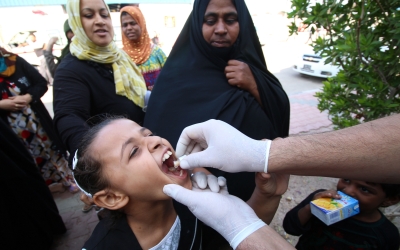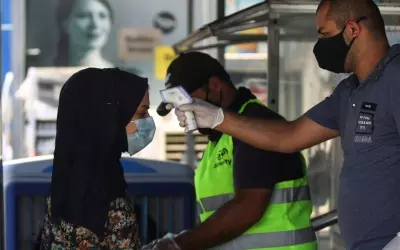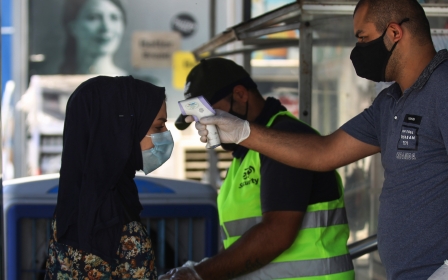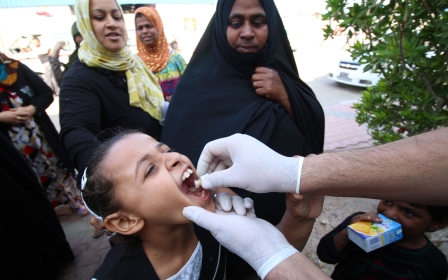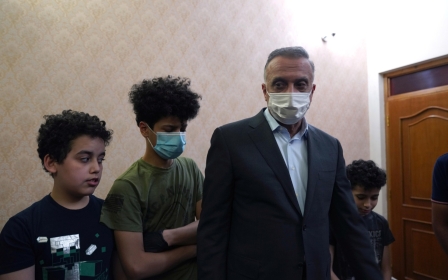Coronavirus: Restrictions at Iraqi checkpoints risking lives of critically ill patients
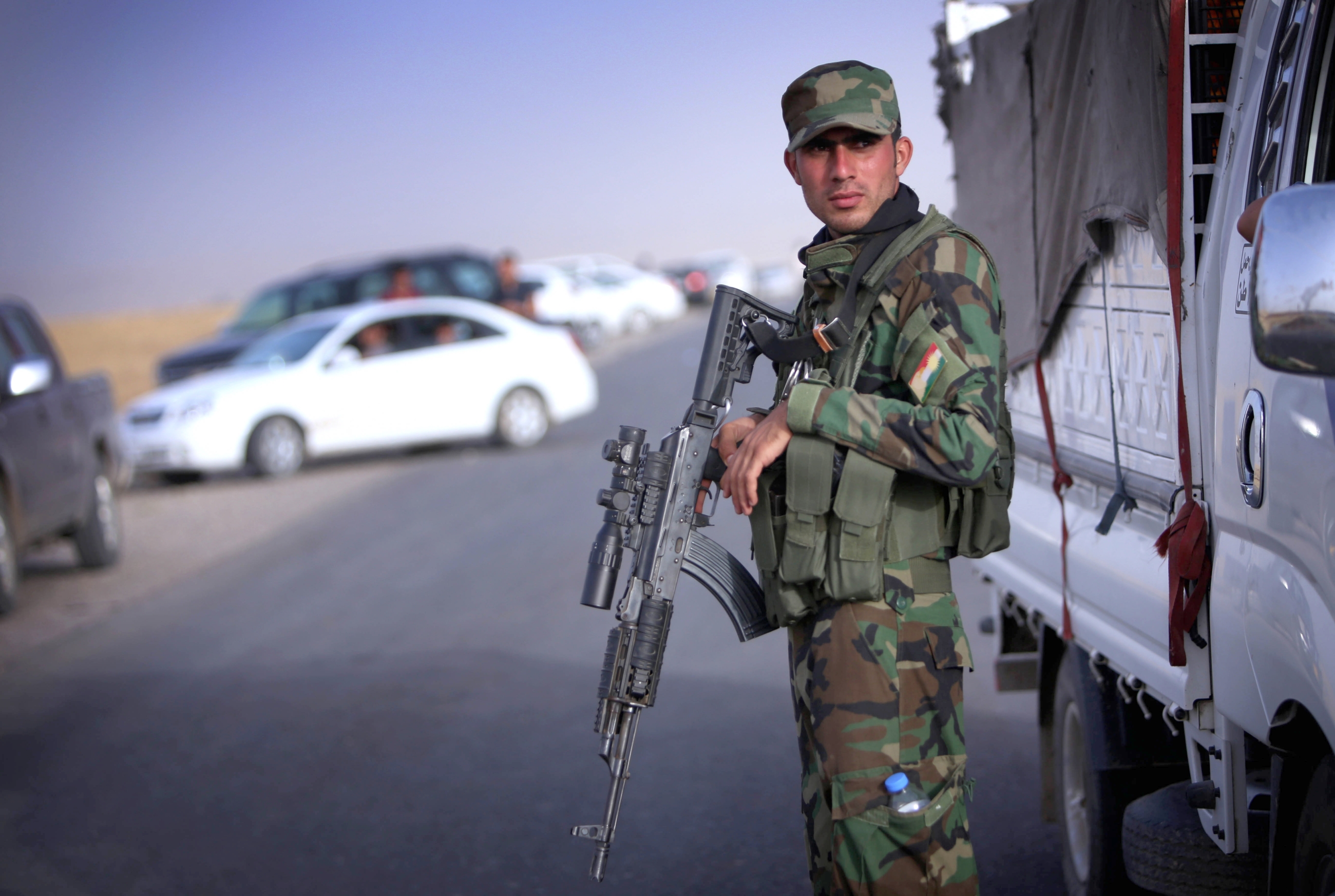
Iraqi health workers are warning that patients in need of critical medical care are at risk of death as a result of increased restrictions at checkpoints at the border between Iraq's autonomous Kurdish region and the rest of the country.
Following the outbreak of the coronavirus pandemic in early 2020, travel between much of Iraq was heavily restricted, particularly between the areas in northern Iraq controlled by the Kurdistan Regional Government (KRG).
This has left Iraqi patients in need of life-saving treatment unable to travel to better-equipped and resourced hospitals in the KRG.
One doctor who works in northern Iraq told Middle East Eye that at least one person had died while waiting to travel to the city for medical care.
The 55-year old patient - a soldier in the Iraqi army - had been en route to the Kurdish region from his posting at the Iraq-Syria border after his brother had died there.
"He was tired and anxious, he started to suffer from chest pain, then relaxed for a few hours but the pain came again got worse," the doctor said.
A nurse who works between Duhok and the Ninevah region of northern Iraq was with the patient and initially suggested he go to Mosul for treatment.
The patient refused to travel to Mosul, however, as a female relative had been raped and killed in the city while it was under the control of Islamic State.
Eventually - after trying and failing again to pass the Saad al-Mosul checkpoint to enter into the KRG region - they decided to take him to Sinjar province, but he died before they could reach a hospital from a suspected heart attack.
'Exceptions for sick people'
The nurse said another patient of his had almost died last week after he had waited for five days attempting to pass the checkpoint.
That patient had been suffering from a hydatid cyst (a cyst caused by a tapeworm larva) on his lung, and had complained of shortness of breath, nausea, anorexia and other symptoms.
'When he arrived at the checkpoint he was very tired and had only like a 30 or 40 percent of survival'
- Nurse
"When he arrived at the checkpoint he was very tired and had only like a 30 or 40 percent of survival," the nurse told MEE.
While waiting at the checkpoint, the cyst ruptured, putting him in a critical condition.
Eventually, authorisation was acquired from an official in the office of former KRG President Massoud Barzani and the patient was rushed to an emergency hospital in Duhok, where his condition was eventually stabilised.
The nurse said that the patient would need further surgery down the line and was currently on a range of medications.
He added that he was increasingly concerned that patients were being put in danger by the coronavirus restrictions and said there "should be some exceptions for sick people".
"For normal people it's good to apply all the rules that they're doing - but for special cases like this, it’s not good," he said.
The doctor said that there were around 100 to 150 people trying to travel into the Kurdish region who were trapped at the Saad al-Mosul checkpoint.
“The problem is some patients need surgical or medical intervention that we cannot do in Ninevah or Sinjar," he said. "They need to reach Dohuk or Erbil, but they face many problems.”
Lockdown loosening
Last week, Baghdad and the KRG announced measures to loosen lockdown restrictions, despite the country only recently seeing some of the highest rates of infection of the coronavirus so far.
Iraq’s health ministry on Tuesday said it had recorded a further 2,466 cases of Covid-19, as well as 81 deaths.
The KRG's health ministry also registered 256 new coronavirus infections and 10 deaths on Sunday.
Members of the parliamentary committee set up to deal with the pandemic have warned that the loosening of restrictions has come too soon and risks losing any gains that have come from the lockdown.
“The decisions of the High Committee for Health and Safety regarding easing procedures, ending the curfew, opening malls, and airports are unscientific and premature,” Jawad al-Musawi, the head of the parliamentary crisis cell, said on Saturday.
He added that the move was "evidence of the fact that there are no specialists in virology, and epidemiology in the [government] committee, unlike the countries of the region and the world”.
Iraq's fragile healthcare system has struggled to cope with the pandemic.
While the country initially appeared to have kept the virus contained, since May there have been daily record numbers of infections, placing an enormous strain on health workers.
"It's very stressful to work in emergency currently," the nurse told MEE.
"It needs new logistics, and new strategies, and new plans. Because of the panic situation, some patients don't come in to hospital until the late stage of the disease, so this makes the situation much worse, very bad."
Due to concerns about future travel repercussions, none of the health workers wanted their names published. The Iraqi health ministry has also recently told health workers not to speak to the media.
Middle East Eye delivers independent and unrivalled coverage and analysis of the Middle East, North Africa and beyond. To learn more about republishing this content and the associated fees, please fill out this form. More about MEE can be found here.


